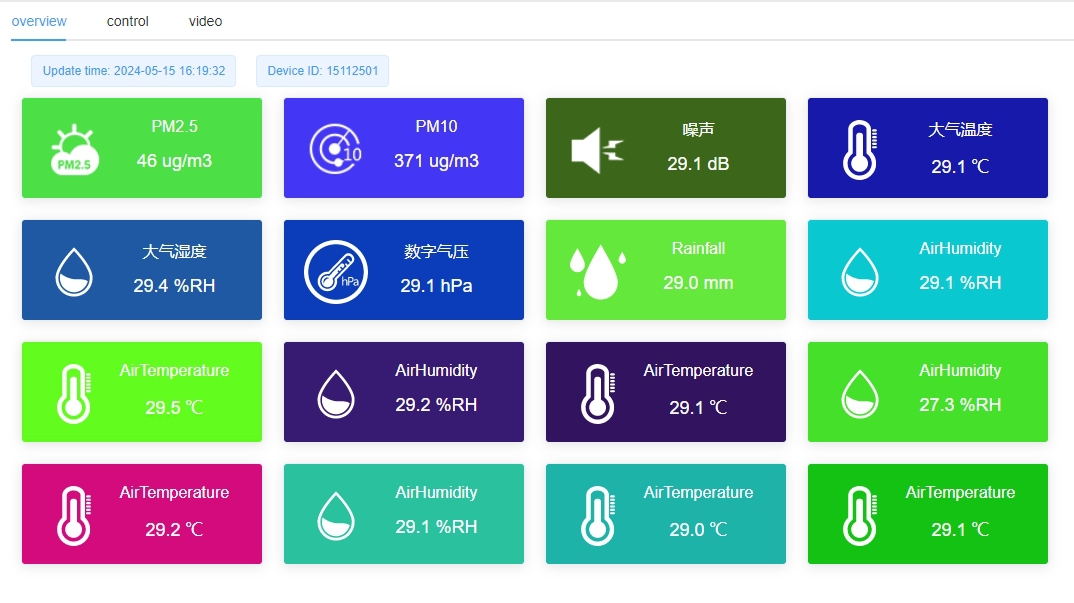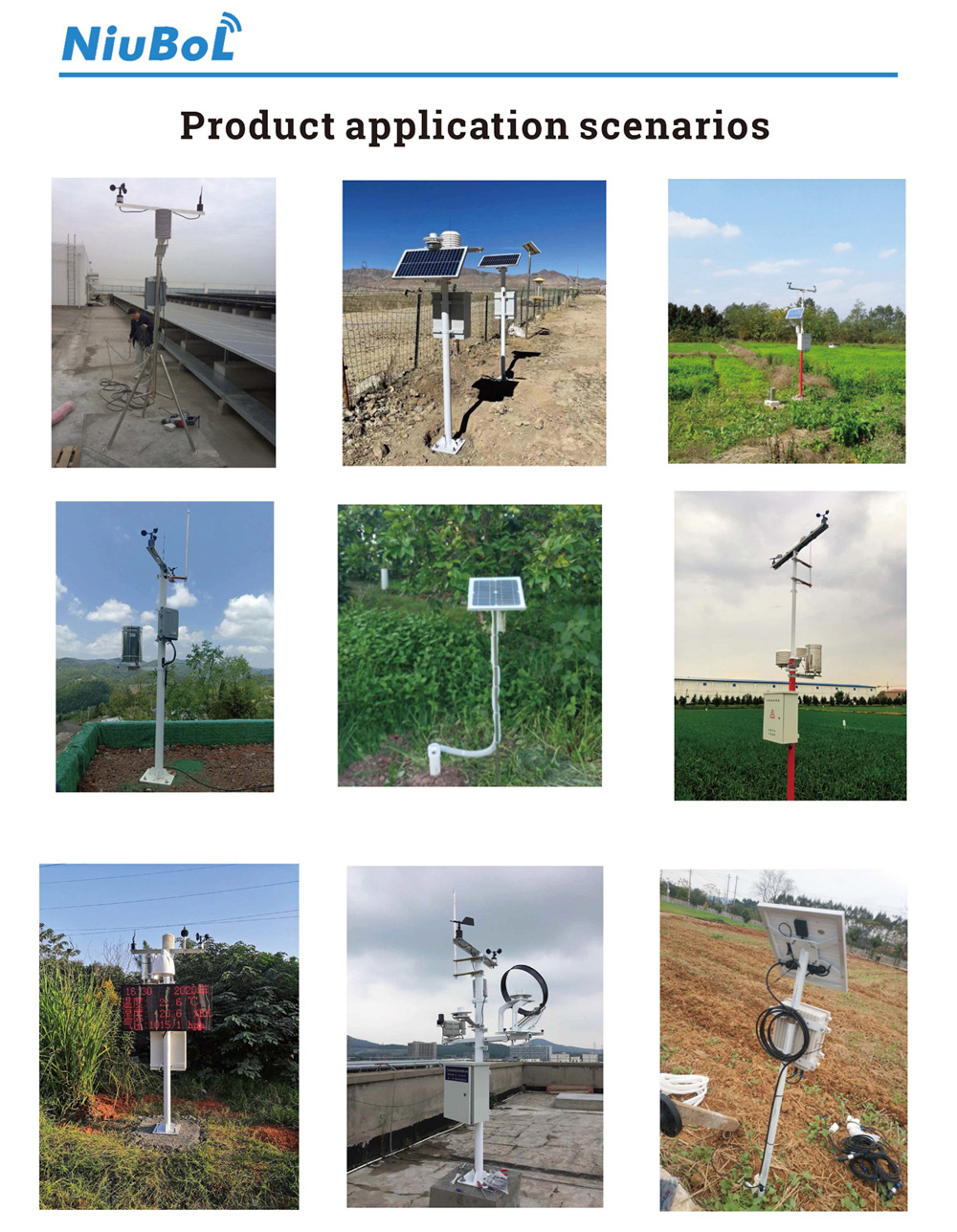

— Blogs —
—Products—
 Consumer hotline +8618073152920
Consumer hotline +8618073152920 WhatsApp:+8615367865107
Address:Room 102, District D, Houhu Industrial Park, Yuelu District, Changsha City, Hunan Province, China
Product knowledge
Time:2024-09-19 21:48:57 Popularity:2194
Digital Weather Station (DWS) is a system that integrates a variety of sensors and electronic devices to monitor and record weather data such as temperature, humidity, wind speed, wind direction, barometric pressure, precipitation, etc. It is used to collect weather data from the environment. It collects weather data from the environment through advanced sensor technology and presents this information through electronic display devices.
Its core consists of two main parts: an outdoor sensor unit and an indoor display unit. The outdoor unit is usually installed in an unobstructed location to ensure accurate measurement of temperature, humidity, atmospheric pressure, wind speed and direction, and sometimes rainfall. These sensors communicate with the indoor display unit via wired or wireless means (e.g. Wi-Fi or RF signals) to transmit real-time data.
The indoor display unit is designed to be user-friendly, either as a stand-alone dashboard or as an app connected to a smartphone, tablet or computer. Users can view current weather conditions on these devices, including, but not limited to, temperature, humidity, barometric pressure trends, and weather forecasts analyzed through built-in software. Some advanced digital weather stations also have the ability to access a wider weather network through an internet connection, providing more comprehensive weather information and even weather forecasts from remote locations. Below is a summary of how digital weather stations work, application scenarios, and summaries.
Digital weather station is a kind of intelligent weather observation equipment that integrates sensor technology, signal processing technology, computer technology and communication technology. Its working principle can be summarized in the following steps:
Digital weather station through a variety of high-precision sensors real-time monitoring of changes in meteorological elements, such as temperature, humidity, wind speed, wind direction, air pressure, precipitation and so on. These sensors according to their respective operating principles, the changes in meteorological elements into electrical signals output.
The original signal collected by the sensor is often an analog signal, which needs to be processed by a signal processor to be converted into a digital signal. Signal processor on the analog signal amplification, filtering, analog-to-digital conversion and other processing to eliminate noise, improve the signal-to-noise ratio, and will be converted to analog signals can be processed by the computer digital signals.
The processed digital signals are transmitted to the central processing unit (CPU) for further processing and analysis.The CPU calculates, analyzes and processes the meteorological data according to preset algorithms and models to derive the values and trends of various meteorological elements. At the same time, the CPU will also store the processed data in the internal memory for subsequent use or transmission to the central station for summary and analysis.
Digital weather station usually has a variety of data transmission and communication methods, such as wired transmission, wireless transmission, satellite communication and so on. According to the actual needs and application scenarios, the weather station can choose suitable data transmission and communication methods to transmit real-time weather data to the central station or user terminals. In the process of data transmission, the weather station will also encrypt and verify the data to ensure the security and integrity of the data.

After receiving the meteorological data at the central station or user terminal, the data can be displayed and applied in various ways. For example, the trend and distribution of meteorological data can be viewed in real time through meteorological software or websites; weather forecasts and climate predictions can be made based on the meteorological data; and meteorological data can also be applied to agricultural production, environmental protection, transportation and other fields to provide strong support for decision-making in various industries.
Digital weather station has a wide range of applications in many fields due to its high precision, automation and real-time features:
1. Meteorological observation: as the core equipment of meteorological observation station, digital weather station provides real-time and accurate meteorological data support for weather forecasting and climate research.
2. Urban environment monitoring: in today's accelerating urbanization, digital weather station can provide real-time meteorological data information for the city to help us better understand the changes in the urban environment.
3. Agricultural field: meteorological changes have an important impact on agricultural production. Digital weather station can provide real-time meteorological data support for agricultural production, help farmers better arrange agricultural production activities and improve agricultural production efficiency.
4. Transportation field: the impact of bad weather on transportation cannot be ignored. The digital weather station can provide real-time weather conditions, provide decision-making support for the traffic management department, and protect the public's travel safety.
5. Disaster prevention field: through the real-time data provided by the digital weather station, we can better predict and prevent the occurrence of natural disasters, providing important technical support for disaster prevention and control work.
6. Commercial and industrial: airports, seaports, large outdoor activities organizations, etc., for safety management and operational decision-making.
7. Home and Office: Used to monitor indoor and outdoor environments, help adjust air conditioning and heating systems, and improve the comfort of living and working environments.
8. Education and Research: On campuses and research organizations, for teaching and research activities to help students and researchers understand meteorology.
9. Aviation and navigation: at airports and harbors, used to provide real-time weather information to ensure flight and navigation safety.

Summary:
Digital weather station is a combination of modern technology and meteorological observation, which realizes high-precision, automated and real-time monitoring of meteorological elements by integrating sensor technology, signal processing technology, computer technology and communication technology. Its working principle includes data acquisition, signal processing, data processing and storage, data transmission and communication, and data display and application. Digital weather stations play an important role in many fields such as meteorological observation, urban environment monitoring, agricultural production, transportation management and disaster prevention, providing powerful data support for decision-making in various industries. With the advancement of technology, these devices are becoming smarter, capable of providing more accurate and diversified weather information, and becoming an important bridge connecting individuals with the natural environment.
Related recommendations
Sensors & Weather Stations Catalog
Agriculture Sensors and Weather Stations Catalog-NiuBoL.pdf
Weather Stations Catalog-NiuBoL.pdf
Related products
 Combined air temperature and relative humidity sensor
Combined air temperature and relative humidity sensor Soil Moisture Temperature sensor for irrigation
Soil Moisture Temperature sensor for irrigation Soil pH sensor RS485 soil Testing instrument soil ph meter for agriculture
Soil pH sensor RS485 soil Testing instrument soil ph meter for agriculture Wind Speed sensor Output Modbus/RS485/Analog/0-5V/4-20mA
Wind Speed sensor Output Modbus/RS485/Analog/0-5V/4-20mA Tipping bucket rain gauge for weather monitoring auto rainfall sensor RS485/Outdoor/stainless steel
Tipping bucket rain gauge for weather monitoring auto rainfall sensor RS485/Outdoor/stainless steel Pyranometer Solar Radiation Sensor 4-20mA/RS485
Pyranometer Solar Radiation Sensor 4-20mA/RS485
Screenshot, WhatsApp to identify the QR code
WhatsApp number:+8615367865107
(Click on WhatsApp to copy and add friends)
